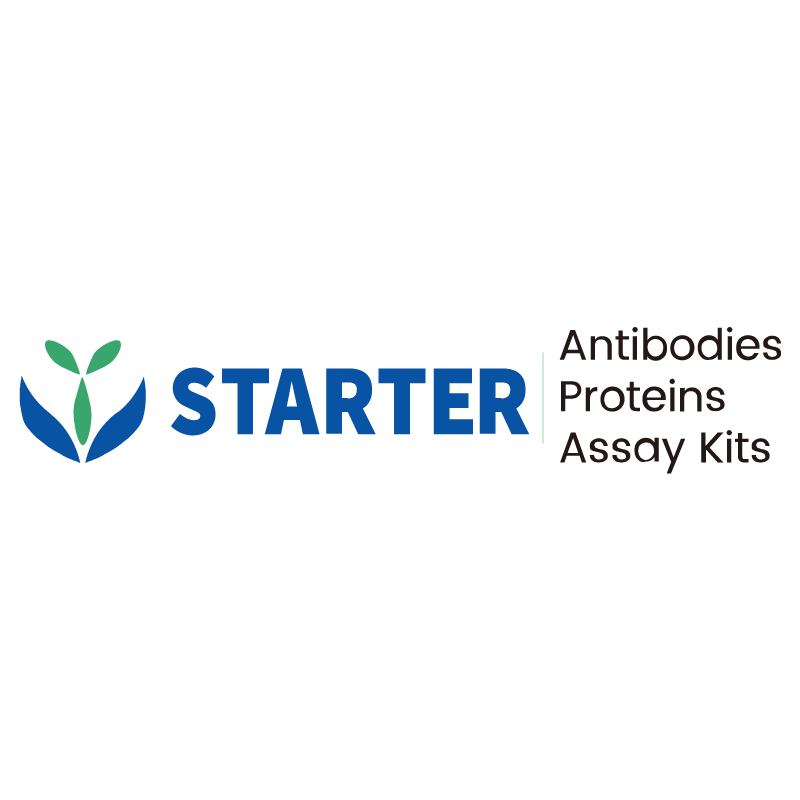WB result of PDX1 Rabbit pAb
Primary antibody: PDX1 Rabbit pAb at 1/1000 dilution
Lane 1: BxPC-3 whole cell lysate 20 µg
Lane 2: Caco-2 whole cell lysate 20 µg
Lane 3: NIH/3T3 whole cell lysate 20 µg
Lane 4: Beta-TC-6 whole cell lysate 20 µg
Negative control: BxPC-3 whole cell lysate; Caco-2 whole cell lysate; NIH/3T3 whole cell lysate
Secondary antibody: Goat Anti-rabbit IgG, (H+L), HRP conjugated at 1/10000 dilution
Predicted MW: 31 kDa
Observed MW: 40 kDa
Product Details
Product Details
Product Specification
| Host | Rabbit |
| Antigen | PDX1 |
| Synonyms | Pancreas/duodenum homeobox protein 1; PDX-1; Glucose-sensitive factor (GSF); Insulin promoter factor 1 (IPF-1); Insulin upstream factor 1 (IUF-1); Islet/duodenum homeobox-1 (IDX-1); Somatostatin-transactivating factor 1 (STF-1); IPF1; STF1 |
| Immunogen | Synthetic Peptide |
| Location | Cytoplasm, Nucleus |
| Accession | P52945 |
| Antibody Type | Polyclonal antibody |
| Isotype | IgG |
| Application | WB, IHC-P |
| Reactivity | Hu, Ms, Rt |
| Positive Sample | Beta-TC-6 |
| Predicted Reactivity | Gor, Cz |
| Purification | Immunogen Affinity |
| Concentration | 0.5 mg/ml |
| Conjugation | Unconjugated |
| Physical Appearance | Liquid |
| Storage Buffer | PBS, 40% Glycerol, 0.05% BSA, 0.03% Proclin 300 |
| Stability & Storage | 12 months from date of receipt / reconstitution, -20 °C as supplied |
Dilution
| application | dilution | species |
| WB | 1:1000 | Hu, Ms |
| IHC-P | 1:1000 | Hu, Ms, Rt |
Background
PDX1, also known as pancreatic duodenum homeobox-1, is a transcription factor encoded by a Hox-like homeodomain gene that plays a crucial role in pancreatic development, β-cell differentiation, and the maintenance of mature β-cell functions. It was first identified as a nuclear endodermal protein expressed in the epithelium of the duodenum and the pancreas. PDX1 activates the expression of several pancreas-associated genes, including insulin, somatostatin, glucokinase, and others. The PDX1 gene is highly conserved among different species and is composed of two exons encoding a protein of 283 amino acids. It is regulated by numerous distant enhancers and transcription factors, which are essential for pancreatic organogenesis and β-cell function. Research has shown that the overexpression of PDX1 promotes β-cell differentiation and insulin secretion, while its absence increases susceptibility to diabetes. Therefore, PDX1 is considered a promising therapeutic target for treating diabetes.
Picture
Picture
Western Blot
Immunohistochemistry
IHC shows positive staining in paraffin-embedded human pancreas. Anti-PDX1 antibody was used at 1/1000 dilution, followed by a HRP Polymer for Mouse & Rabbit IgG (ready to use). Counterstained with hematoxylin. Heat mediated antigen retrieval with Tris/EDTA buffer pH9.0 was performed before commencing with IHC staining protocol.
IHC shows positive staining in paraffin-embedded mouse pancreas. Anti-PDX1 antibody was used at 1/1000 dilution, followed by a HRP Polymer for Mouse & Rabbit IgG (ready to use). Counterstained with hematoxylin. Heat mediated antigen retrieval with Tris/EDTA buffer pH9.0 was performed before commencing with IHC staining protocol.
IHC shows positive staining in paraffin-embedded rat pancreas. Anti-PDX1 antibody was used at 1/1000 dilution, followed by a HRP Polymer for Mouse & Rabbit IgG (ready to use). Counterstained with hematoxylin. Heat mediated antigen retrieval with Tris/EDTA buffer pH9.0 was performed before commencing with IHC staining protocol.


